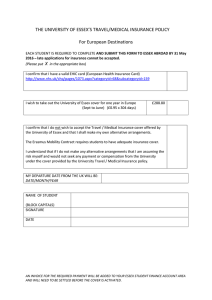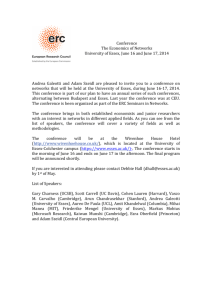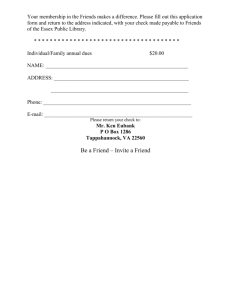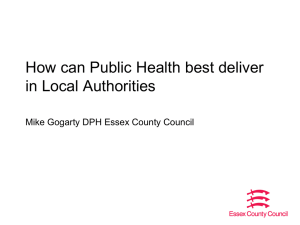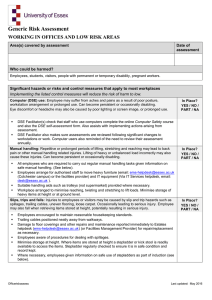The Effect of Single Sex Schools on Individuals Achievement Lina Cardona
advertisement
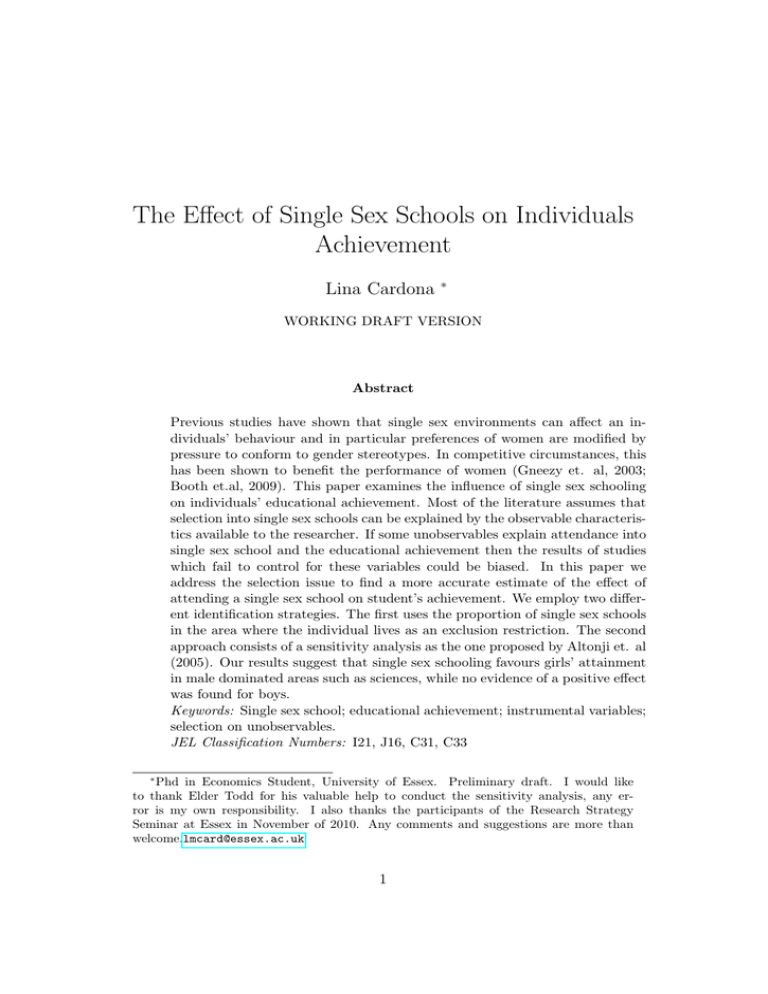
The Effect of Single Sex Schools on Individuals Achievement Lina Cardona ∗ WORKING DRAFT VERSION Abstract Previous studies have shown that single sex environments can affect an individuals’ behaviour and in particular preferences of women are modified by pressure to conform to gender stereotypes. In competitive circumstances, this has been shown to benefit the performance of women (Gneezy et. al, 2003; Booth et.al, 2009). This paper examines the influence of single sex schooling on individuals’ educational achievement. Most of the literature assumes that selection into single sex schools can be explained by the observable characteristics available to the researcher. If some unobservables explain attendance into single sex school and the educational achievement then the results of studies which fail to control for these variables could be biased. In this paper we address the selection issue to find a more accurate estimate of the effect of attending a single sex school on student’s achievement. We employ two different identification strategies. The first uses the proportion of single sex schools in the area where the individual lives as an exclusion restriction. The second approach consists of a sensitivity analysis as the one proposed by Altonji et. al (2005). Our results suggest that single sex schooling favours girls’ attainment in male dominated areas such as sciences, while no evidence of a positive effect was found for boys. Keywords: Single sex school; educational achievement; instrumental variables; selection on unobservables. JEL Classification Numbers: I21, J16, C31, C33 ∗ Phd in Economics Student, University of Essex. Preliminary draft. I would like to thank Elder Todd for his valuable help to conduct the sensitivity analysis, any error is my own responsibility. I also thanks the participants of the Research Strategy Seminar at Essex in November of 2010. Any comments and suggestions are more than welcome.lmcard@essex.ac.uk 1

